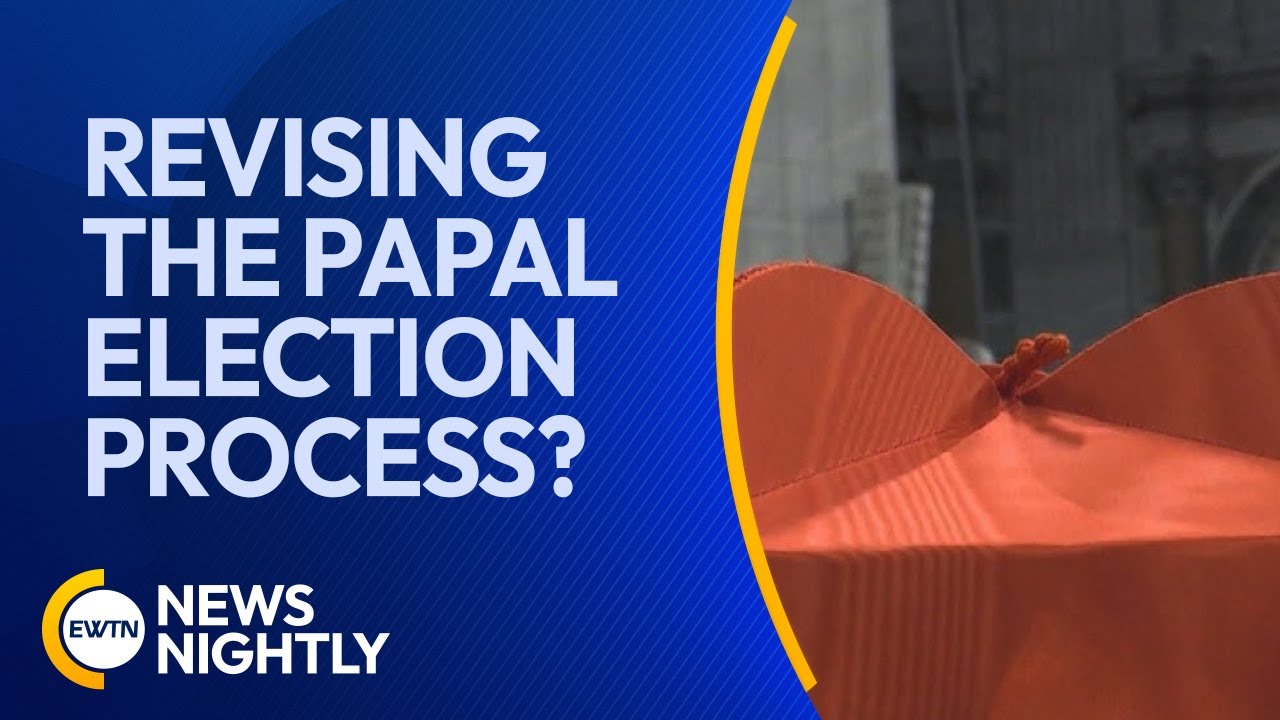Analyzing The Next Papal Election: Potential Candidates And Their Platforms

Table of Contents
Key Factors Influencing the Next Papal Election
The selection of the next Pope is a complex process influenced by several key factors. The College of Cardinals, the body responsible for electing the Pope, is a diverse group with varying theological perspectives and geographical origins. Understanding this diversity is essential to predicting the outcome of the next Papal election.
-
The geographical diversity of the College of Cardinals: The cardinals represent a global Church, with members from every continent. This geographical distribution ensures a variety of viewpoints are considered during the conclave. The balance of power between different regions will undoubtedly influence the election's outcome.
-
The influence of different theological perspectives within the College: The College of Cardinals includes individuals with varying theological viewpoints, ranging from more conservative to more progressive. This spectrum of opinions will significantly shape the discussions and decisions during the conclave. The prevailing theological currents within the College will be a major factor in determining the next Pope's approach to various issues.
-
The impact of current global events (e.g., war, climate change, social justice issues) on the election: Global events significantly impact the Church and will undoubtedly influence the election. Issues like climate change, social justice, and international conflicts are likely to be prominent considerations for the cardinals. The next Pope will need to address these challenges effectively.
-
The importance of pastoral experience and administrative skills in potential candidates: Cardinals with extensive pastoral experience and proven administrative skills are often preferred. The next Pope will need to lead a global organization with millions of followers, requiring strong leadership and management capabilities. Experience in handling complex organizational matters and navigating diverse opinions is highly valued.
Potential Candidates and Their Theological Standpoints
Several prominent cardinals are frequently mentioned as potential candidates for the next Papal election. While predicting the outcome is impossible, analyzing their theological viewpoints provides valuable insight into the possible future directions of the Catholic Church. It's important to note that these are interpretations based on publicly available information and should not be considered definitive statements of their positions.
-
Cardinal X (Example):
- Stance on liturgical reforms: Cardinal X has consistently advocated for a more inclusive and participatory liturgical approach, emphasizing the active involvement of the laity. He has expressed support for some modernization of liturgical practices.
- Views on ecumenism and interfaith dialogue: He is known for his commitment to ecumenism and interfaith dialogue, actively seeking common ground with other Christian denominations and faith traditions.
- Approach to social justice and poverty: Cardinal X is a strong advocate for social justice and poverty alleviation, emphasizing the Church's role in serving the marginalized and vulnerable.
-
Cardinal Y (Example):
- Stance on liturgical reforms: Cardinal Y holds a more conservative view on liturgical reforms, prioritizing the preservation of traditional practices and emphasizing the importance of liturgical uniformity.
- Views on ecumenism and interfaith dialogue: While supportive of dialogue, Cardinal Y places a greater emphasis on the unique identity and teachings of the Catholic Church.
- Approach to social justice and poverty: Cardinal Y champions social justice but approaches it from a more traditional theological framework, emphasizing individual responsibility alongside societal reforms.
-
Cardinal Z (Example):
- Stance on liturgical reforms: Cardinal Z takes a moderate approach to liturgical reforms, balancing the need for tradition with the desire for greater inclusivity and relevance to contemporary society.
- Views on ecumenism and interfaith dialogue: He actively participates in ecumenical and interfaith initiatives, fostering understanding and collaboration while upholding Catholic doctrine.
- Approach to social justice and poverty: Cardinal Z champions social justice through both direct charitable works and advocacy for systemic change.
Predicted Platforms and Future Directions of the Catholic Church
Based on the potential candidates and their theological viewpoints, several platforms could emerge as priorities for the next papacy. These platforms will significantly influence the future direction of the Catholic Church.
-
Potential focus on evangelization and missionary work: The next Pope might prioritize revitalizing missionary efforts and promoting evangelization in new and innovative ways. This could involve reaching out to marginalized communities and leveraging technology to spread the Gospel.
-
Predicted approaches to interreligious dialogue and ecumenism: The emphasis on interreligious dialogue and ecumenism will vary depending on the chosen Pope. Some might prioritize stronger ecumenical ties with other Christian denominations, while others may focus on broader interfaith collaboration.
-
Likely stances on social issues, such as poverty, climate change, and LGBTQ+ rights: The next Pope's stance on social issues will be closely watched. We can expect a range of approaches, from strong advocacy for social justice to more nuanced perspectives balancing social concerns with traditional teachings.
-
Potential changes in Church governance and administration: The next Pope may introduce reforms to Church governance and administration, aiming for greater efficiency, transparency, and accountability. This could involve changes to the structure of the Roman Curia or other administrative bodies.
Conclusion
This analysis of the next Papal election has highlighted the complex interplay of factors influencing the selection process, from the composition of the College of Cardinals to the pressing global challenges facing the Church. Several potential candidates have been profiled, showcasing a range of theological perspectives and potential platforms for future leadership. Understanding these factors is crucial for navigating the significant implications of the next Papal election.
Call to Action: Stay informed about the upcoming Papal election. Continue researching potential candidates and their platforms to understand the many aspects of the next Papal election and its future implications for the Catholic Church worldwide. Follow our updates on the next Papal election for further analysis and insights.

Featured Posts
-
 Payton Pritchards Historic Season A Sixth Man Of The Year Case
May 11, 2025
Payton Pritchards Historic Season A Sixth Man Of The Year Case
May 11, 2025 -
 Jessica Simpsons Struggle The Pressure Of Success Alongside Britney And Christina
May 11, 2025
Jessica Simpsons Struggle The Pressure Of Success Alongside Britney And Christina
May 11, 2025 -
 Barber Motorsports Park Colton Hertas Qualifying Performance
May 11, 2025
Barber Motorsports Park Colton Hertas Qualifying Performance
May 11, 2025 -
 Unleash Your Inner Baba Yaga A John Wick Experience In Las Vegas
May 11, 2025
Unleash Your Inner Baba Yaga A John Wick Experience In Las Vegas
May 11, 2025 -
 Aaron Judges 2025 Goal The Significance Of His On Field Push Ups
May 11, 2025
Aaron Judges 2025 Goal The Significance Of His On Field Push Ups
May 11, 2025
